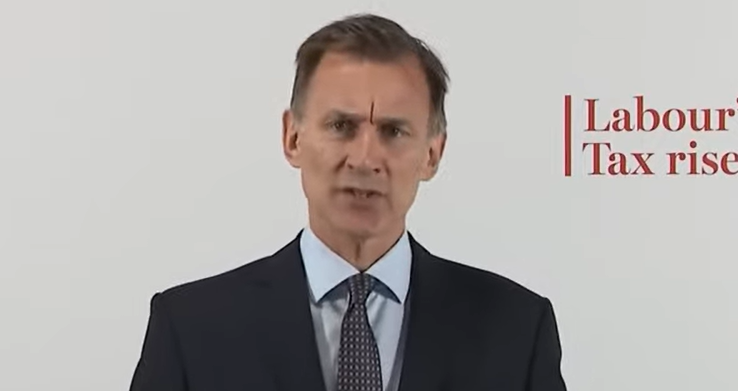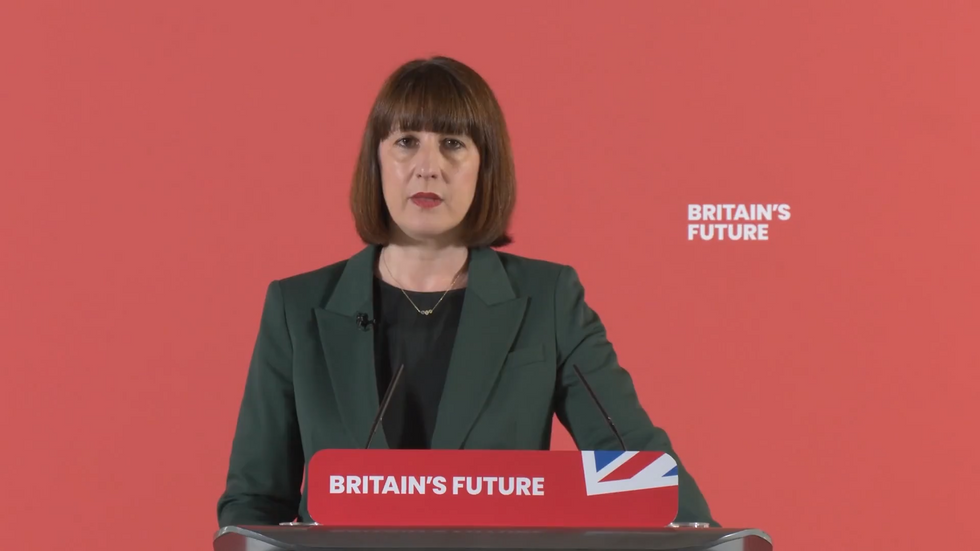If Labour reintroduces a "charge" on pensioners, it could have a "catastrophic" impact on the British public, according to exeprts
PA
The Labour Party are claimed to be considering reintroducing the lifetime allowance on pension savings
Don't Miss
Most Read
Trending on GB News
Experts are warning of the "catastrophic impact" on pension savings if the Labour Party reintroduce an "excess" tax charge following a likely win at the General Election on July 4.
The Official Opposition has pledged to make changes to the pension system under Sir Keir Starmer if it returns to power following an overhaul to retirement savings rules under Chancellor Jeremy Hunt.
As of April 2024, the lifetime allowance on pensions was effectively abolished after being set at £1,073,100.
This was the amount of money someone can be saved with having to pay a "an excess charge" to HM Revenue and Customs (HMRC).
As well as this, the Conservative Party has raised the annual allowance on pension savings to £60,000 while in power.
Shadow Chancellor Rachel Reeves has suggested Labour would reintroduce the lifetime allowance in a move that could generate up to £800million a year for the Government.
Do you have a money story you’d like to share? Get in touch by emailing money@gbnews.uk.

Chancellor Jeremy Hunt scrapped the lifetime allowance on pensions earlier this year
GB NewsHowever, experts are cautioning the likely next party of Government over their reported plans to overhaul the UK's pension system.
Megan Jenkins, the partner at Saltus, described Labour's plan for pensions as "incredibly short sighted" which could hurt them in power.
She explained: "For many people, the recent changes have little to no impact in the short term and the reality is that although the Lifetime Allowance has gone in name, in practice, the £1,073,100 amount is still used within the calculation of the Lump Sum Allowance (LSA) and The Lump Sum Death Benefits Allowance (LSDBA).
"There are a limited number of people to whom the changes have created a positive impact in the short term.
"If Labour were to reintroduce the excess charge on pensions, that would have a catastrophic impact on whole swathes of the public over time as it punishes savers and penalises them for being long term investors.
"Reintroducing this would go counter to the pledge to ‘deliver economic stability’ and potentially impact the source of funding for the ‘great British energy’ institution – ultimately, this is likely to need private sector money – probably form the UK pension funds to help deliver this aspiration.”
The annual allowance was first introduced by the then Labour government in April 2006 and set at £1.5million.
Within its first few years of existing, the threshold was increased to £1.8million by April 2010.
Former George Osborne slashed the allowance to £1 million in April 2016 with his successors gradually raising it to £1,073,000 in April 2020.
After it reached this level, the threshold for paying tax on pensions was frozen for a number of years and abolished by the Tories earlier this year.
LATEST DEVELOPMENTS:

Rachel Reeves has suggested Labour could reintroduce the lifetime allowance
POOLIn response to rumours of the lifetime allowance's return, the Institute of Fiscal Studies (IFS) concluded the threshold being reintroduced in some capacity may be beneficial.
The think tank stated: "It would also be sensible to go beyond a simple reintroduction of the lifetime allowance at its previous level.
"One option would be to reinstate the lifetime allowance at a higher value than its old level alongside a reduction in the new limit on the amount of pension from which 25 per cent be taken free of income tax and a new limit (ideally zero, but any limit would be an improvement) on the amount of pension that can be bequeathed free of inheritance tax.
"A reinstated lifetime allowance should also be less generous for defined benefit pensions (relative to defined contribution pensions) than the one that was in place from 2006 to 2022, and particularly so for those who take their defined benefit pensions earlier."








